With encouraging box-office collections of 'Killa' prompting distributors to allot more screens to the small-budget Marathi film, we track the factors that are giving a push to regional cinema....
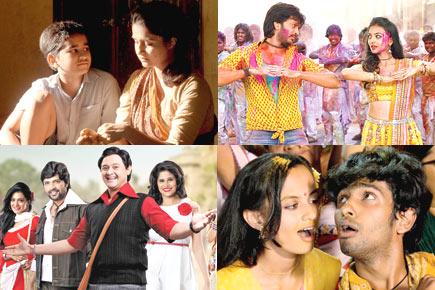
The National Award-winning Marathi film 'Killa', which got a theatrical release last Friday, has received an overwhelming audience response. In money terms, it translated into Rs 3.25 crore in the opening weekend notwithstanding the fact that it was allotted a limited number of 225 screens. And with a surge in footfalls, the distributors have decided to allot more screens to the film.
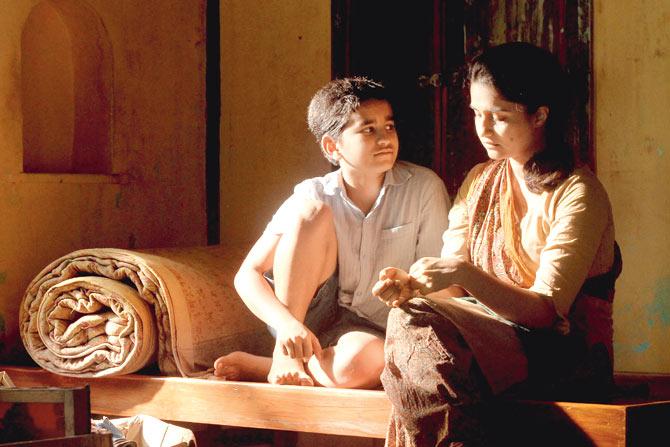
Archit Deodhar and Amrita Subhash in a still from 'Killa'
Says the film's producer Nikhil Sane, "Although it is a small-budget film, the number of screens given to it was quite decent as compared to other commercial Marathi movies. Now following the good response, theatre owners have decided to allot more screens to it. Killa is currently running in 250 cinema halls, on nearly 4000 screens, which is equal to that of any other regular film. So far, it has collected around Rs 4.50 crore."
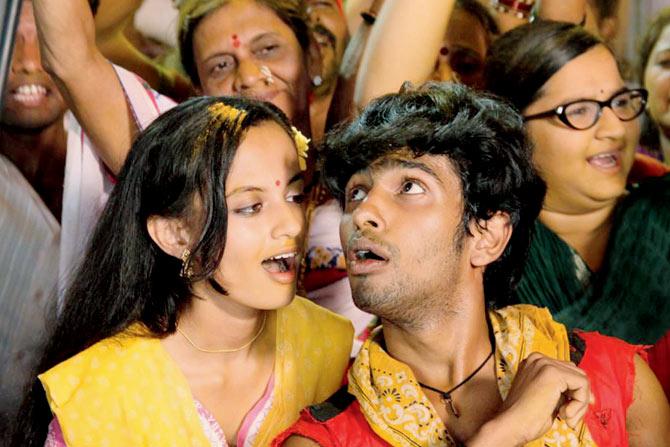
'Timepass' (above) grossed Rs 5 crore in its opening weekend and over a span of three weeks, it had broken the all time high figures held by (below) 'Duniyadari' (2013) at Rs 25 crore
While some would say that the state government's rule on giving prime time slots to Marathi films in city multiplexes has done a world of good to regional cinema, one cannot ignore the industry's resurgence in the last few years — stronger content, more number of releases and higher profits, all without the aid of big budgets or superstar presence in the movies.

Prime time success
Rege writer Pravin Tarde, who has helmed the upcoming film 'Deool Band', says, "The story has always been the real hero for Marathi cinema and films like 'Balak Palak', 'Rege', 'Coffee Ani Barach Kahi', Fandry and others have proved that if the story is good, big actors are not required. The government's decision in favour of Marathi film screening has also helped immensely. The box office figures of recent films testify that."
Agrees producer Vivek Rangachari. "I believe that content is the king irrespective of the genre. And it stands true for Marathi films as well. Good content will always leave its mark on the audience. The government initiative has definitely given an impetus to the industry," he says.
Umesh Kulkarni, who won the National Award for his film 'Deool' (2011), feels the government rule has come as a boon for the industry since 100-150 films are being made these days and it becomes difficult to bag the right release date and time slots in multiplexes. "Regional cinema needed this boost," he adds.
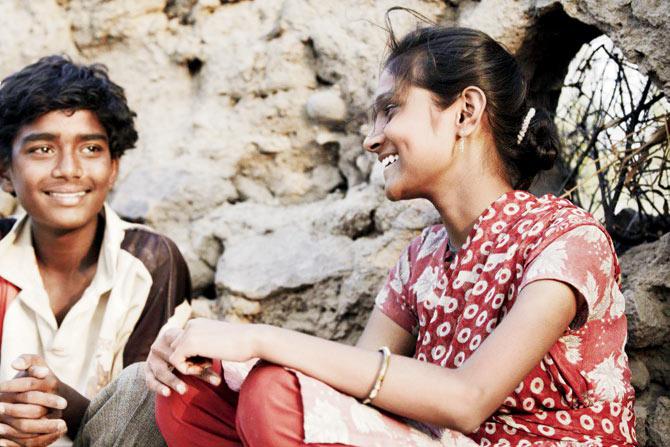
'Fandry', which had an off-beat story, was promoted by the who's who of Bollywood including Kiran Rao and Rakeysh Omprakash Mehra
Changing mentality
The audience's evolving sensibilities have shown in its acceptance for newer subjects and a variety of genres. Nagraj Manjule, writer-director of National Award-winning film 'Fandry', says, "The mentality of the audience has undergone a sea change. People are coming to cinema halls to watch films which didn't feature known faces. I want to appreciate the courage of the audience for accepting experimental topics and films.

'Lai Bhaari', which was made at a cost of Rs 8 crore, did an overall business of Rs 40 crore
However, I don't think rules on having particular number of screens and slots will help Marathi films overnight. If the content is good and your film is doing well, then multiplex owners are not villains that they wouldn't give you more screens. I believe we should keep making such films and give tough competition to Hindi films so that we automatically get more screens as well as desired slots."

Nagraj Manjule, writer-director of 'Fandry'
Speaking of competition with Bollywood, it had recently come to light that the regional industry had made nearly 200 per cent profits in the previous year while the much bigger Hindi filmdom, which rides on claims of hundreds of crores of rupees, had registered only a paltry 0.6 per cent gain. The relatively low cost of production have been an advantage for Marathi films. Among two of the biggest releases last year, 'Lai Bhaari' did a business of Rs 40 crore, which was five times of its budget, while 'Timepass', made at a cost of Rs 1.75 crore, raked in Rs 31 crore. The latter grossed Rs 5 crore in its opening weekend and over a span of three weeks, it had smashed the all time high figures held by 'Duniyadari' (2013) at Rs 25 crore.
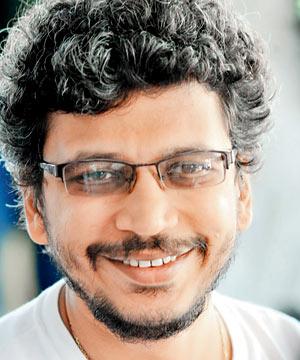
Umesh Kulkarni, director of 'Deool' (2011)
Kulkarni states, "I feel Marathi cinema has been accepted very well now. Youngsters are coming to theatres and so, directors too are coming up with new subjects. I also feel production houses must be given credit for reaching out to more peoplewith their films. For example, films like 'Killa' and 'Elizabeth Ekadashi' did well because the makers could manage to promote it."
While Marathi films have now been luring people beyond the traditional audiences with a wide variety of cinematic offerings, it must be mentioned that even recent Bollywood film which experimented with offbeat plots have also proved to be crowd-pullers and made big money too. So, content-driven films are the way forward, be it in Hindi, Marathi or any other language.
Chinks in the trade
'Lai Bhaari' producer Amay Khopkar asserts that the word-of-mouth publicity in case of Marathi films leads to a spurt in collections. "The trend has been that the numbers multiply in the second week if the first week collection of a film is good and it gets audience appreciation," he says.
Khopkar also points out that the profit sharing of 45 per cent has worked in their favour — this is the percentage of profits that the producers are now entitled to, instead of 40 per cent earlier, for the second week of their film's release as that's the period when films attract more viewers. However, behind the rosy picture lie some grey areas. "The only problem we have face is when three or four movies release together and they end up eating into each other's business. We are planning to sort out this issue soon," he adds.
 Subscribe today by clicking the link and stay updated with the latest news!" Click here!
Subscribe today by clicking the link and stay updated with the latest news!" Click here!







